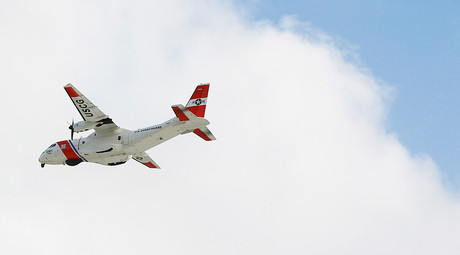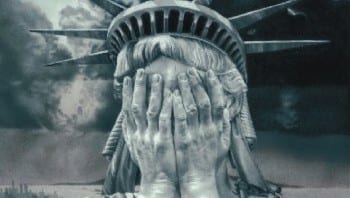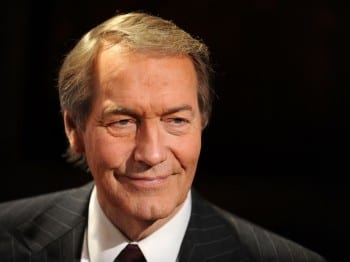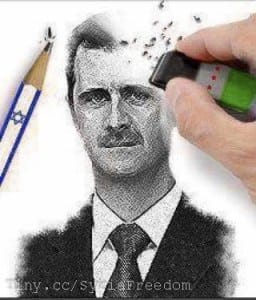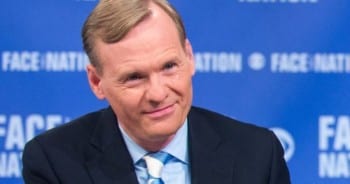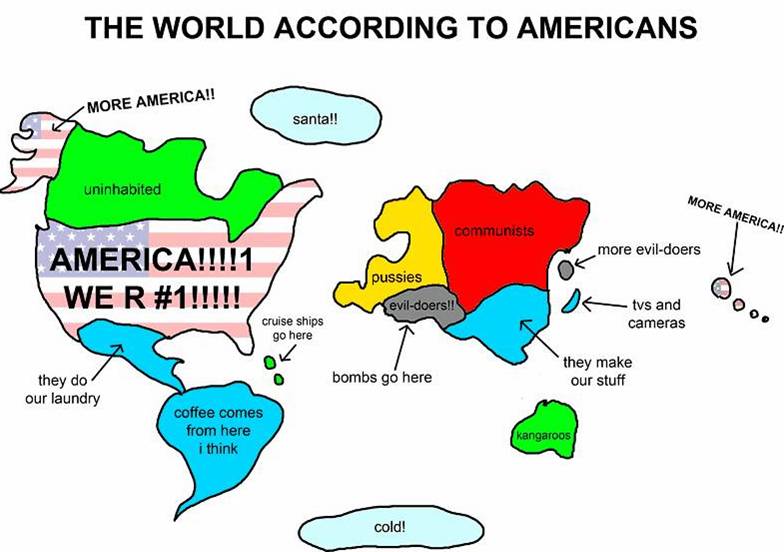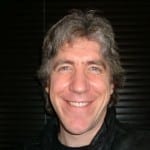= Stephen Gowans =
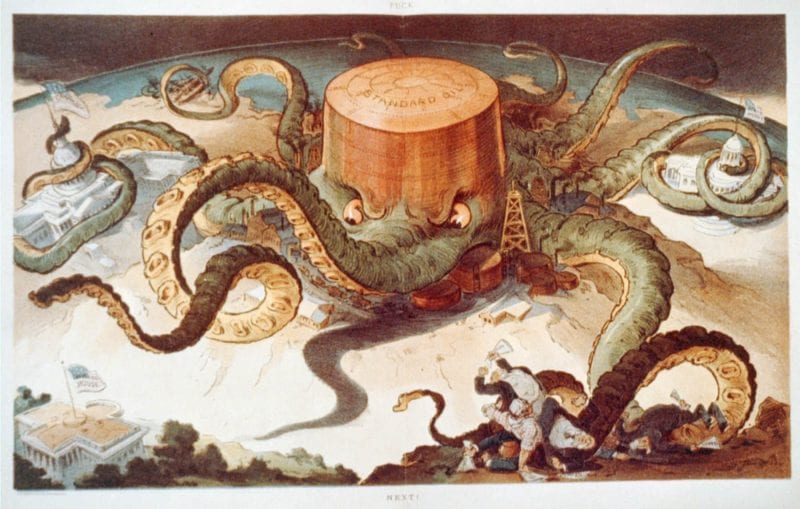
Imperialism is inherent in the dynamic of all corporations, whose reason for being is endless expansion. When they dominate the state, its foreign policy becomes overt imperialism.
The idea that the United States has “interests” abroad is an affront to democracy and geography. How can a country have interests, and not only that, but vital ones, in every corner of the world, unless we ignore geography and the idea that the people who live in a place ought to own it, and organize their own affairs? All the same, US leaders regularly pronounce that the United States has vital interests abroad, and that the possession of these interests warrants the “projection of power,” which is to say the establishment of a military presence in a region to intimidate its people and governments to acquiesce to US demands.
Rarely, if ever, is it said what these “vital interests” are. They simply exist, and must be defended. Occasionally, their nature is at least superficially glimpsed, as in the idea that the Middle East is a vital US interest owing to its vast reserves of oil, and that if these reserves were to come under the control of a “hostile” power, the world could be held to ransom. Elements of this view can be traced to the Carter Doctrine and form much of the basis of what is presented as US strategy in connection with the Middle East.
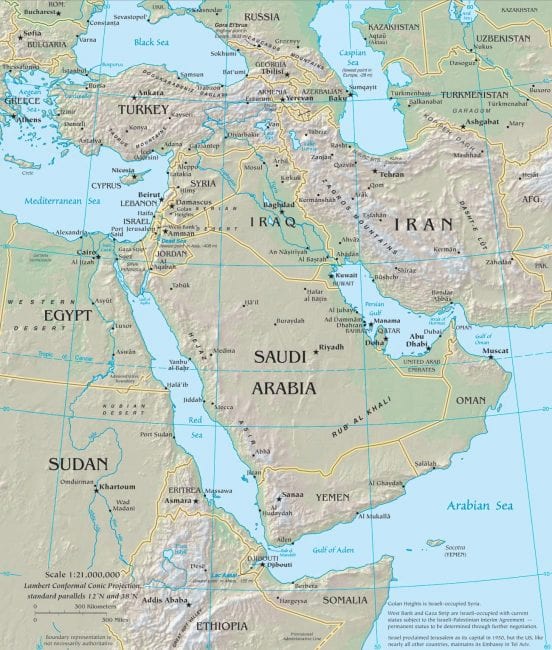
The Middle East has been coveted for its oil and strategic location, astride three major continents. Yet oil is no longer a critical matter for the United States, given its self-sufficiency.
To members of the general public it is likely that this thinking translates into the idea that the United States must interfere in the Arab world to guarantee the security of oil supplies, and thus the US way of life. What this overlooks, however, is that Canada is by far the largest foreign supplier of oil to the United States, accounting for 43 percent of all imports [1], versus just 22 percent in 2012 from six Persian Gulf suppliers, [2] and that the United States itself, is a major producer of oil, third ranked in the world, behind only Saudi Arabia and Russia [3]. Moreover, the United States is on track to become the world’s leading oil producer in just five years [4]. “[I]ncreasing production and declining consumption have unexpectedly brought the United States markedly closer to a goal that has tantalized presidents since Richard Nixon: independence from foreign energy sources” [5]. “The chimera of ‘energy independence’,” observes The New York Times, has begun “to look more tangible” [6].
…
[dropcap]A[/dropcap]s a major producer of oil, the United States has never been as dependent on Persian Gulf oil as it is popularly believed—and indeed, has never been dependent on the Persian Gulf for supplies of oil to any significant degree. It wasn’t until the mid-1970s, when consumption began to outstrip domestic supply, that the United States began to import oil from the Persian Gulf. An observation made by the sociologist Albert Szymanski in 1983 is still relevant today. “Much has been made of supposed US reliance on the Persian Gulf area for petroleum. But while tremendous profits are made by US-based petroleum corporations that continue to dominate the petroleum industry in this region, the United States is not in fact especially reliant on petroleum imports from the Gulf.” [7] Indeed,
“until the mid-1970s, very little Middle Eastern petroleum was imported into the United States, even though US transnational corporations had controlled the petroleum consortiums in the area for a generation. During this time, US transnational corporations took the oil out of the ground and sold it to Europe and Japan (as well as to the less developed countries) making tremendous profits, which they in good measure repatriated to the United States.
“In 1976…US petroleum companies in the Middle East exported less than 7 percent of their output to the United States while selling 82 percent to third countries.” [8]
Despite the minimal role the Persian Gulf has played in satisfying North American oil requirements, figures central to US foreign policy have justified US military intervention in the Middle East on the grounds of safeguarding security of supply. Bernard Lewis, an intellectual attached to the enormously influential US foreign policy organization, The Council on Foreign Relations, outlined the reasons for the US military intervention in the Persian Gulf in 1991 in the Council’s magazine Foreign Affairs, with reference to the need to protect the security of the world’s oil supply:
“If Saddam Hussein had been allowed to continue unchecked he would have controlled the oil resources of both Iraq and Kuwait. If the rest of the region observed that he could act with impunity, the remaining Persian Gulf states would sooner rather than later have fallen into his lap, and even the Saudis would have had either to submit or be overthrown. The real danger was monopolistic control of oil—which is a very large portion of the world’s oil.” [9]
Richard B. Cheney, then the US vice-president, invoked a similar rationale in August 2006 to explain the US invasion of Iraq in 2003: “Armed with an arsenal of…weapons of mass destruction, and seated atop 10 percent of the world’s oil reserves, Saddam Hussein could then be expected to seek domination of the entire Middle East [and] take control of the world’s energy supplies.” [10] (Note the false conflation of Persian Gulf oil with the “world’s” energy supplies.)
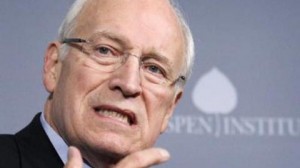
The indestructible and untouchable Cheney: The gallows is too good for this piece of arch-criminal scum.
Since not all of the world’s oil lies in the Persian Gulf, and much of it is found in Russia and North America, the idea that Saddam Hussein could control the world’s oil supply—and threaten the economy and living standards of North Americans—is transparently false. Lewis and Cheney had engaged in deliberate fear-mongering to mobilize public support for illegitimate interventions in the Middle East to bring about the political and economic domination of the region by the United States. The real motivation was not to safeguard the security of energy supplies, but to eliminate a threat to the profits of US petroleum corporations posed by Arab nationalists. In his book Devil’s Game, Robert Dreyfuss paints a picture that doubtlessly agitated the minds of US foreign policy planners.
“The oil monarchies are ruled by royal kleptocracies whose legitimacy is nil and whose existence depends on outside military protection. Most Arabs are aware that the monarchies were established by imperialists seeking to build fences around oil wells. Arabs would gain much by combining the sophistication and population of the Arab centers, including Iraq, with the oil wealth of the desert kingdoms. At the center lies Egypt, with its tens of millions of people and Saudi Arabia with its 200 billion barrels of oil. Uniting Cairo and Riyadh would create a vastly important Arab center of gravity with worldwide influence.” [11]
It is fairly certain that were Arabs to unify, overcoming the artificial political divisions imposed on them by the British Sykes and French Picot after WWI, and overcoming the sectarian cleavages that outsiders have sought to deepen, that more of the benefits of the sales of their petroleum resources would be retained at home, available for their own development, and less would be transferred to accounts of the capitalist class in the United States. There’s no danger that a pan-Arab power in possession of its own resources would blackmail those countries that depend on Middle Eastern oil. Cutting off the supply of oil would destroy the economy of the pan-Arab state, since it would depend on oil sales to earn revenue to import goods and services from the same countries it would presumably be seeking to hold to ransom. Because underdeveloped countries typically rely on the developed world to supply them with a wide range of goods and services, which they pay for with a few agricultural or resource goods, “historically it has been the advanced countries that have been able to effect disciplined boycotts against the poorer countries, far more than the reverse.” [12] What “the less developed countries…are interested in,” observed Szymanski, is “securing significantly better terms of trade for themselves.” [13] But, of course, significantly better terms of trade for themselves means leaner profits for US shareholders and investors. And therein lies the motivation for the United States’ hegemonic ambitions in the Middle East, namely, preventing the natives from throwing off their exploitation by US corporations.
American muscle is deployed around the world to protect and expand the rule of interlinked plutocracies and kleptocracies. You can’t get more corrupt than that.
…
Who Rules America?
[dropcap]S[/dropcap]zymanski and others, among them Ralph Miliband (The State and Capitalist Society), G. William Domhoff (Who Rules America?), Thomas Ferguson (Golden Rule) and Martin Gilens and Benjamin Page (“Testing Theories of American Politics: Elites, Internet Groups, and Average Citizens”), have made the case that US society is dominated politically by a wealthy class of billionaire bankers, investors, and corporate titans. Gilens and Page, reviewing a vast empirical literature on the political influence of various sections of US society, have summarized the research this way: “[E]conomic elites and organized groups representing business interests have substantial independent impacts on U.S. government policy, while average citizens and mass-based interest groups have little or no independent influence.” [14] The Gilens and Page analysis comes from academe, but a careful reading of major newspapers furnishes scores of instances that resonate with the duo’s conclusion. For example, The New York Times of October 10, 2015 reported that just 158 families and the companies they own and control, mostly in finance and energy, have contributed half the funds to Democratic and Republican presidential candidates in the 2016 presidential race [15], from which the not unreasonable conclusion can be drawn that just 158 families and the companies they own and control, have an impact on US politics far in excess of their numbers (but not their wealth)—another way of saying that the United States is more a plutocracy than a democracy.
The enormous wealth commanded by members of the US capitalist class allows them to use their money to shape electoral contests, spending just a small fraction of their income. For example, Chicago hedge fund billionaire Kenneth C. Giffen has contributed $300,000 to Republican presidential candidates in the 2016 race, well beyond the capabilities of an average citizen. But Giffen’s contribution represents less than one percent of his monthly income of $68.5 million. [16] The titles of the following articles further point out the role of wealth in shaping US politics: “Hillary, Jeb and $$$$$$” (New York Times, February 21, 2015); “Bloomberg starts ‘Super PAC’, seeking national influence” (New York Times, October 17, 2012); “The businessman behind the Obama budget” (Wall Street Journal, July 13, 2012); “Which millionaires are you voting for?” (New York Times, October 13, 2012); “Close ties to Goldman enrich Romney’s public and private lives” (New York Times, January 27, 2012); “Conservative non-profit acts as stealth business lobbyist” (New York Times, April 21, 2012); “Number of millionaires in Congress: 261” (CBS News, November 17, 2010); “White House opens door to big donors, and lobbyists slip in” (New York Times, April 14, 2012); “Obama sends pro-business signal with adviser choice” (New York Times, January 21, 2011); “Wall Street ties linger as image issue for Hillary Clinton” (New York Times, November 21, 2015); “Obama’s not-so-hot date with Wall Street”(New York Times, May 2, 2012). The last article appears to indicate that limits exist on Wall Street’s influence in Washington (the not-so-hot date) but in point of fact describes US politics as a contest between various factions of the capitalist class to persuade average voters to back their favored candidate. This calls to mind the wry observation that the art of politics is to enable the wealthy to persuade the rest of us to use our votes to keep the representatives of the super-rich in power.
 The American superrich buy the politicians for a pittance. They are cheap prostitutes. “Chicago hedge fund billionaire Kenneth C. Giffen has contributed $300,000 to Republican presidential candidates in the 2016 race, well beyond the capabilities of an average citizen. But Giffen’s contribution represents less than one percent of his monthly income of $68.5 million.”
The American superrich buy the politicians for a pittance. They are cheap prostitutes. “Chicago hedge fund billionaire Kenneth C. Giffen has contributed $300,000 to Republican presidential candidates in the 2016 race, well beyond the capabilities of an average citizen. But Giffen’s contribution represents less than one percent of his monthly income of $68.5 million.”
However, the influence of the dominant economic class on politics extends well beyond the electoral arena. Szymanski offers a concise summary of the mechanisms the wealthy use to dominate US politics.
Szymanski on the Theory of the State [17]
[dropcap]T[/dropcap]here is a wealthy class that dominates the US state and the US government and runs the state in its interest and against the interests of the vast majority of people. There are various ways that the wealthy class is able to dominate the US government even though there are elections in which everyone is eligible to vote. There are at least seven different ways by which the wealthy are able to control the US government. The first four are instrumental mechanisms. The last three are structural mechanisms. Instrumental mechanisms refer to ways in which the rich directly intervene in the US government. Structural mechanisms refer to those conditions that constrain the decision-making process. They operate independent of instrumental mechanisms. Hence, even if wealthy people don’t influence the government, the government is compelled by the ideological environment, the imperative of maintaining business confidence to avert economic crises and military intervention to make decisions in the interests of big business.

The direct mechanisms are:
• The placement of wealthy individuals or elite corporate executives in the top policy-making positions in the state.
• The pressure exerted on elected representatives and regulatory commissioners by lobbyists to legislate and rule in favor of business interests.
• Campaign funding. Politicians have to do the bidding of business if they want to receive the campaign funds they need to seriously contest elections.
• The role of key policy-formation groups, including the Trilateral Commission, the Council on Foreign Relations, the Business Council—very powerful, exclusive, private organizations that formulate public policies and are able to transmit them to the government, by putting their people in top positions, holding regular conferences, and sending reports to the government.
…
There are 7-8 full-time lobbyists in Washington DC for every elected member of Congress. Virtually all work for big business.
Congress people, heads of regulatory commissions, and top generals are recruited by large corporations at the end of their public service careers to work as lobbyists, usually earning more money than they make in public service. Aware of the lucrative possibilities for their post public service careers, they ingratiate themselves with their prospective employers by acting in their interests while in politics, to ensure that they’re later offered remunerative positions.
There are no teeth in laws aimed at limiting the role of money in election campaigns. Consequently, the wealthy are able to spend as much as they want to get politicians who are sympathetic to their interests elected.
Policy-formation organizations are generally composed of two-thirds elite business people and one-third academics and major intellectuals and other influential people. They hold seminars and meetings with government officials, as well as transmit many policy recommendations to the government.
The structural mechanisms:
• Ideological hegemony: The ability of business to put ideas in our heads, so that we think like them, and thereby act the way they want us to act.
• Business strikes: Business’s ability to move outside a jurisdiction if the state’s policies are not conducive to profit-making. Businesses’ freedom to invest their capital as they see fit limits what governments can do.
• Military hegemony: If a government gets out of line and encroaches on business interests the military can take over.
[dropcap]M[/dropcap]ost people get their news and political values from the major media and educational system. Major media are major private corporations interlocked with major banks. But not only are they major private businesses themselves, they depend on advertising from major businesses. They are, then, doubly dependent on big business. If the media’s content becomes anti-business, sponsors cancel. So how we get our ideas is doubly controlled by big business.
The boards of trustees of universities are generally dominated by business people. Business people also make the major contributions to universities and therefore are in a position to influence what academics study.
Hence, schools and mass media are dominated by big businesses. We get our political values and ideas from the mass media and schools—hence, from big business.
We think our decisions about who we vote for are freely made, but our political ideas and values have been instilled by big business through the institutions of the mass media and education system which it dominates. All mass media and all universities are pro-business.
Suppose a state tripled the minimum wage and gave corporations six months to stop polluting. Business would move to another jurisdiction where wages were lower and there were no laws against pollution. Massive unemployment would ensure. In the next election, the government would be blamed for the economic crisis. It would lose the election to a right-wing party that would promise to bring jobs back by passing business-friendly legislation. It might propose to abolish the minimum wage altogether and to rescind all laws against pollution.
As long as business is free to invest or not invest—as long as it makes the economic decisions—the government has to structure the environment to serve businesses’ profit-making imperative; otherwise it will face a serious economic crisis. The only way to circumvent this structural constraint is to deny private business the freedom to make economic decisions, which is to say to nationalize them, so that capital cannot be relocated or made idle and is mobilized in the interests of a majority of people, rather than a wealthy minority of owners.
There are only eight countries in the world of say 160 capitalist countries that unremittingly had elections and parliamentary forms from about 1940: Britain, Ireland, the United States, Canada, Australia, New Zealand, Switzerland and Sweden. All others had a dictatorship or military government at some point. Hence, the normal state for capitalist economies is to have military rule. Only the wealthiest capitalist states haven’t had military rule. But when a capitalist country encounters a severe crisis that challenges capitalist rule, it resorts to military rule.
Often the military takes over, and then relinquishes power. When this happens, civilian governments know that if they implement anti-business policies, the military will intervene once again. Hence, they are careful to remain within the bounds of acceptable big business policy. If ever there were a deep crisis in the United States that threatened capitalist rule, US generals would act as their counterparts in other capitalist countries have.
The Council on Foreign Relations
Szymanski cites the elite policy-formation organization The Council on Foreign Relations as one of the principal organizations through which US capitalist class policy preferences are transmitted to the US government. Laurence H. Shoup has recently written a major treatise on the Council, titled Wall Street’s Think Tank, an update of an earlier analysis he co-authored with William Minter, titled Imperial Brain Trust. Shoup argues that the Council is the major organization through which the US capitalist class establishes its agency and direction, becoming a class for itself. As such, it is worth a closer look.
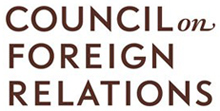
[dropcap]T[/dropcap]he Council is a private organization with a chairman (for years David Rockefeller, who remains the honorary chairman) and board members (typically billionaires or near billionaires) and approximately 5,000 members, who are selected by the board. The raison d’être of the organization is to bring together intellectuals, prominent business people, leading members of the media, state officials, and top military leaders, into an exclusive club which formulates foreign policy recommendations and promotes them to the public and government. The Council’s interlocks with the US state are extensive. Beginning with the Carter Administration and moving forward to the Obama Administration, Shoup found that 80 percent of the key cabinet positions, which he defined as State, Defense, Treasury, National Security Adviser, and US Ambassador to the UN, were filled by Council members. Presidents (George H.W. Bush and Bill Clinton) and vice-presidents (George H.W. Bush and Richard Cheney) were members at the time they were elected to these posts. One president, Carter, became a member after leaving the presidency.The table below shows how many current Council members have filled key positions in the US state. They were usually members of the Council before they were appointed to these posts:
Secretary of Treasury, 10
National Security Adviser, 10
US Ambassador to the United Nations, 9
Secretary of State, 8
Secretary of Defense, 8
CIA Director, 8
Chairman of the Joint Chiefs, 4
Head of the Federal Reserve, 4
World Bank President, 3
President, 2
Vice-President, 2
Director of National Intelligence, 2
Director of the National Security Agency, 1
Seventeen key current and former members of Obama’s administration are members of the billionaire-directed private club: James Jones Jr. (national security adviser); Thomas Donilon (national security adviser); Susan Rice (national security adviser, US ambassador to the UN); Timothy Geithner (treasury); Jack Lew (treasury); Robert Gates (defense); Chuck Hagel (defense); Ashton Carter (defense); David Petraeus (CIA); Robert Zoellick (World Bank); Janet Napolitano (homeland security); John Bryson (commerce); Penny Pritzker (commerce); Ernest Moniz (energy); Sylvia Burwell (health and human services); Mary Jo White (securities and exchange); and Michael Froman (US trade representative.) John Kerry, while not a Council member, is married to near billionaire Teresa Heinz Kerry, who is.
On top of placing its members in key state positions, the Council also directly influences policy by dominating external advisory boards established to advise the secretaries of state and defense and the director of the CIA. The Foreign Affairs Policy Board acts “to provide the Secretary of State, the Deputy Secretaries of State, and the Director of Policy Planning with independent, informed advice and opinion concerning matters of U.S. foreign policy.” It consists of 20 advisers, 18 of whom belong to the Council as members. The Defense Policy Board provides “the Secretary of Defense, Deputy Secretary of Defense and the Under Secretary of Defense for Policy with independent, informed advice and opinion concerning major matters of defense policy.” Fourteen of its 22 members belong to the Council. On September 10, 2009 then CIA Director Leon Panetta announced the establishment of an external advisory board of “distinguished men and women” who would visit CIA headquarters “periodically and offer their views on managing [the CIA] and its relationships with key customers, partners, and the public.” Ten of the 14 advisers Panetta named to the board—the majority—were Council on Foreign Relations members.
The Council is interlocked with other influential foreign policy-related organizations, including the Trilateral Commission (an international version of the Council, reaching beyond the United States to include counterparts in Canada, Western Europe, and Japan), Human Rights Watch and the International Crisis Group.
Human Right Watch’s co-chair Joel Motley; vice-chair John Studzinski (global head of the investment firm Blackstone); board member Michael Gellert; executive director Kenneth Roth; and deputy executive director Carol Bogert, are all members of The Council on Foreign Relations. A major source of funding comes from Council member George Soros’ Open Society Institute.
The International Crisis Group has extensive overlaps with the Council. ICG Chairman Emeritus, George J. Mitchell, is a Council member, as are the following trustees: Mort Abramowitz; Samuel Berger; Wesley Clark; Thomas R. Pickering; Olympia Snowe; George Soros; and Lawrence Summers. Council members who serve as senior ICG advisers include Zbigniew Brzezinski; Stanley Fischer; Carla Hills; Swanee Hunt; James V. Kimsey and Jessica T. Mathews. Soros and Rockefeller are major sources of funding.
The Council membership includes an assortment of billionaires and prominent business people, including Peter Ackerman (supporter of non-violent overthrow movements and head of the CIA-interlocked Freedom House); Bruce Kovner; Henry R. Kravis; Penny Pritzker; David M. Rubenstein; Frederick W. Smith; George Soros; Leonard A. Lauder; Mortimer B. Zuckerman; Eric E. Schmidt; Stephen Schwarzman; John Paulson; Lloyd Blankfein; Edgar Bronfman Jr.; Jamie Dimon; Louis V. Gerstner, Jr.; and a number of Rockefellers, a Roosevelt, and members of other wealthy families. It also includes a media mogul, Rupert Murdoch, and prominent journalists: Tom Brokaw; Leslie H. Gelb; Robert W. Kagan; Charles Krauthammer; Nicholas D. Kristof; Lewis H. Lapham; Judith Miller; Peggy Noonan; Walter Pincus; John Podhoretz; Dan Rather; David E. Sanger; Diane Sawyer; George Stephanopoulos; and Barbara Walters. Not only does the Council place its members in key positions in the state and in influential civil society organizations, it also co-opts leading media figures to promote the Council’s views to the public.
Antipathy to Public Ownership
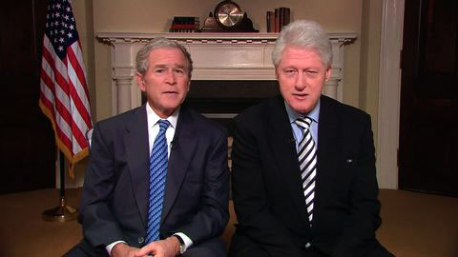
[dropcap]S[/dropcap]ignificantly, every country in which the United States has intervened militarily either directly or through proxies, or threatened militarily, since WWII has had a largely publicly owned economy in which the state has played a decisive role, or has had a democratized economy where productive assets have been redistributed from private (usually foreign) investors to workers and farmers, and in which room for US banks, US corporations and US investors to exploit the countries’ land, labor, markets and resources has been limited, if not altogether prohibited. These include the Soviet Union and its allied socialist countries; China; North Korea; Nicaragua; Yugoslavia; Iraq; Libya; Iran; and now Syria. We might expect that a foreign policy dominated by a wealthy investor class would have this character. It would react to the restrictions of communists, socialists and economic nationalists on US profit-making as obstacles to overcome, even at great cost to the lives of others. For example, asked in 1996 about a UN estimate that US-led sanctions had killed 500,000 Iraqi children under the age of five, then US secretary of state Madeleine Albright (a Council member) told 60 Minutes that “It’s a hard choice, but I think, we think, it’s worth it.” [18] Italian philosopher and historian Domenico Losurdo has pointed out that the Clinton administration’s murder through sanctions-related hunger and disease of hundreds of thousands of Iraqis is a crime far in excess of any of which Soviet leader Joseph Stalin can been accused, since the deaths attributed to Stalin were the consequences of decisions he took as defensive responses to a permanent state of emergency the USSR faced during his years in power, including the aggressions of Nazi Germany and Imperial Japan and the Cold War, aggressions which threatened the very existence of the Soviet Union. By contrast, the United States faced no security threat from Iraq. Even so, then US president Bill Clinton chose to sacrifice the lives of numberless Iraqis in pursuit of the foreign policy goal of establishing US hegemony in the Middle East to facilitate the accumulation of capital by his country’s economic elite. [19] If Stalin is portrayed as a monster, then by what greater category of monster must we describe Clinton, or for that matter, George W. Bush, leader of the trumped-up 2003 war on Iraq? It is one thing to take decisions which lead to innumerable deaths in response to significant threats against one’s country, and quite another to kill numberless people in the absence of a threat in pursuit of foreign policy goals related to the profit-making interests of bankers, investors and oil companies.
US Foreign Policy Goals in Syria
[dropcap]W[/dropcap]e need not tarry too long on the idea that the intervention of the United States and its allies in the struggle in Syria is motivated in any way by considerations of human rights and democracy, since (a) the United States counts as its principal allies in the Middle East, despotic regimes whose disdain for human rights as elemental as the right of women to drive automobiles (in the case of Saudi Arabia) knows no parallel, and yet Washington is perfectly comfortable to dote on these anti-democratic monarchies, emirates and dictatorships, selling them arms, establishing military bases on their territory and protecting them against condemnation in international forums and from the opposition of democratic forces at home; and (b) these same tyrannies are the major supporters, along with the United States, of barbaric, sectarian Sunni jihadists who have butchered their way across Syria for the last four years. When their attacks are directed at Syrians, the brutality of these sectarian fanatics is mechanically noted then passed over quickly by the Western news media, in contrast to the copious coverage afforded to equivalent butchery aimed at Western targets. Hence, the ISIS attack in November of 2015 in Paris was given wide-ranging coverage and elevated to an event of earth-shattering proportions, while similar attacks carried out almost daily in Syria and Iraq, and in Syria by “rebels”, including the non-ISIS Sunni Islamists dubbed “moderates” by the US government, are largely ignored. For example, in August 2013, ISIS, the Nusra Front, Ahrar al-Sham and other Islamist fanatics slaughtered more than 200 Alawite villagers, and at the same time kidnapped more than 100 women and children. [20] There was no Western media-orchestrated outpouring of grief for these victims of Sunni Islamist terrorism.
“Joseph Stalin is reputed to be a monster for causing innumerable deaths as a consequence of decisions he took to defend the Soviet Union against multiple existential threats, not least of which was aggression by Nazi Germany. What category of monster, then, are former US presidents Bill Clinton and George W. Bush, who, in the absence of a security threat from Iraq, chose to sacrifice the lives of numberless Iraqis in pursuit of the foreign policy goal of establishing US hegemony in the Middle East to facilitate the accumulation of capital by their country’s economic elite?”
There is a confluence of factors that seem to have conduced to making the Syrian government a target for US-sponsored regime change through militant Sunni Islamist proxies, but two appear to be primary.

The first is the status of the Syrian government as the last bastion of Arab nationalism. Arab nationalism threatens the ability of the US corporate class to draw a Himalaya of profits from the Atlantic to the Persian Gulf, the traditional range of the Arab nation. Instead of a free flow of profits to the United States, facilitated by Arab kings and emirs who have no legitimacy with their own people and rely on Washington’s support to continue their despotic rule, the proceeds of the sale of the region’s petroleum resources would be used for the region’s own internal development, if Arab nationalist aspirations were brought to fruition. The carriers of the Arab nationalist contagion must, from the point of view of US foreign policy planners, be eradicated.
The second is the existence in Syria of a major role for the state in the ownership and control of the economy. The idea of state control of industry and enterprise is an anathema to the US foreign policy establishment, as well we would expect it to be, given the enormous influence of bankers, investors and major corporations in Washington, in no small measure exercised through The Council on Foreign Relations. US capital is looking for places to export to and invest in. It is no accident that one of the first tasks undertaken by the dictator Washington initially installed in Iraq in 2003, L. Paul Bremer (not surprisingly, a member of the Council), was to remove most restrictions which the toppled Arab nationalist government in Baghdad had imposed on US investors and exporters. Tariffs and duties were abolished; scores of Iraqi enterprises were put on the auction block; much of the economy was opened to foreign investment; foreign investors were allowed to repatriate 100 percent of their profits; and a 15 percent flat tax was established. [21]
Likewise, much of the growing US hostility to China, signaled in the Obama’s administration’s military pivot to the Asia-Pacific region, and the Council’s call for Washington to “balance the rise of China” (which is to say eclipse its economic growth), is based on opposition to the significant role the Chinese Communist Party plays in China’s economy. Saying that Washington is opposed to state economic control is another way of saying that the US foreign policy establishment bristles at restrictions which prevent US investors and businesses from fully realizing the profit potential of Chinese land, labor, resources, and markets. US investors, US business people and US bankers want China as a wonderful source of profits, an aspiration that fails to comport fully with China’s own development strategy.
Similarly Damascus’s significant management of Syria’s economy at the expense of US investors and US corporations has very likely been a major consideration (among others) behind the decision taken by the big business-dominated US foreign policy establishment to attempt to engineer the ouster of Assad’s Arab nationalist government.
Conclusion
[dropcap]I[/dropcap]t is said that countries have interests, not friends, but is there any democratic or geographically legitimate sense in which they have economic interests on someone else’s territory? Only imperialists have economic interests beyond their own borders, enforced through threat and coercion, and that US state officials regularly invoke the phrase “our vital interests” in other countries in order to justify interventions is a measure of how unabashedly imperialist US foreign policy is. The vital interests the United States claims to have in the Middle East, Asia and Europe are no more valid than the vital interests Nazi Germany claimed to have in Europe, fascist Italy claimed to have in Africa, Imperial Japan claimed to have in East Asia, and Britain claimed to have in Asia and Africa.
An analysis of who exercises sway over public policy making in Washington leads to an inescapable conclusion: US foreign policy has a class content. It is that of bankers, investors and major shareholders of the United States’ key corporations who, through instrumental and functional mechanisms, dominate US public affairs. This class has an interest in unimpeded access to the land, labor, resources and markets of the entire world (and beyond [22]) for purposes of making itself ever wealthier. For this reason, US foreign policy is, and has always been, hostile to the threat posed by the economic self-determination of foreign populations which aspire to control their own wealth-producing assets for their own purposes. This is no less true in connection with Syria, whose government represents the last bastion of an Arab nationalism which is against US corporate control of the Arab heartland, and which plays a significant role in the country’s economic affairs at the expense of private US investors. By contrast with the imperialist character of US foreign policy, the thinking of the Syrian president is democratic and geographically valid: “Syria,” he has said, “is an independent state working for the interests of its people, rather than making the Syrian people work for the interests of the West.” [23] US foreign policy seeks to turn this on its head. In the view of US foreign policy planners, Syria ought to be a US client state which colludes in making the Syrian people work for the economic interests of a parasitic elite of billionaires, wealthy investors, and major shareholders who sit atop US society and aspire to sit atop the entire world.
![]()
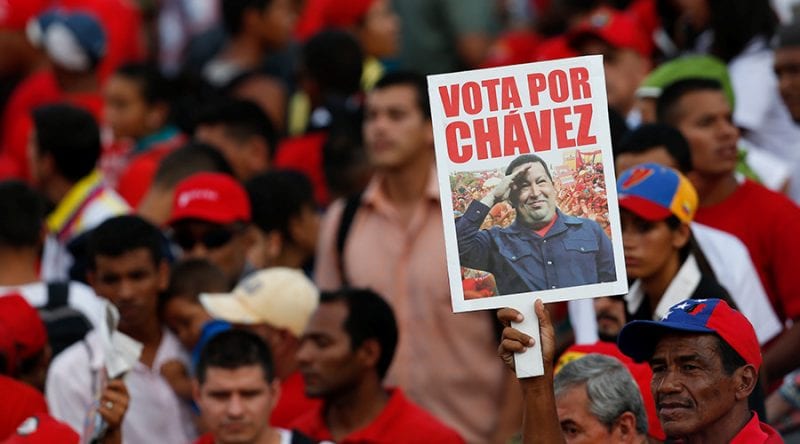
 is a radical journalist and political analyst who lives in New York City. Originally from Ohio, he studied political science at Baldwin-Wallace College. In addition to his journalism, analysis, and commentary, he has engaged in political activism. He is a youth organizer for the International Action Center and was involved in the Occupy Wall Street movement from its planning stages in August 2011. He has worked against police brutality, mass incarceration, and imperialist war. He works to promote revolutionary ideology, and to support all who fight against the global system of monopoly capitalist imperialism.
is a radical journalist and political analyst who lives in New York City. Originally from Ohio, he studied political science at Baldwin-Wallace College. In addition to his journalism, analysis, and commentary, he has engaged in political activism. He is a youth organizer for the International Action Center and was involved in the Occupy Wall Street movement from its planning stages in August 2011. He has worked against police brutality, mass incarceration, and imperialist war. He works to promote revolutionary ideology, and to support all who fight against the global system of monopoly capitalist imperialism.![]() Nauseated by the
Nauseated by the
